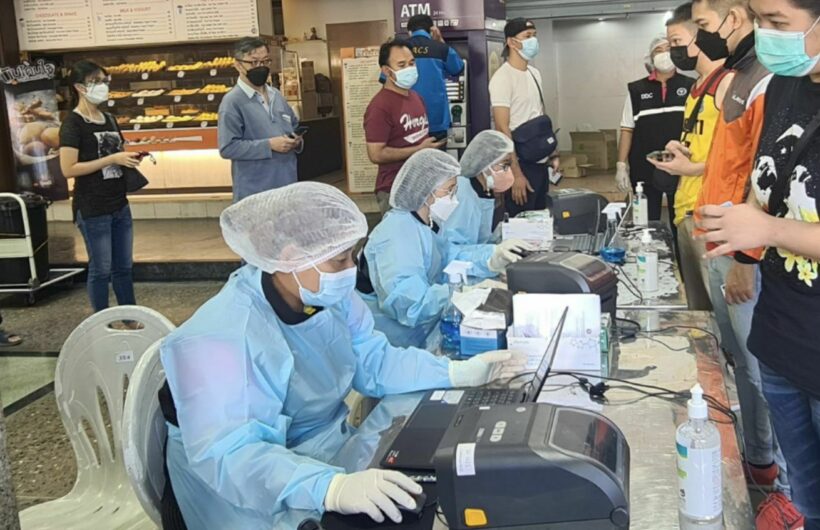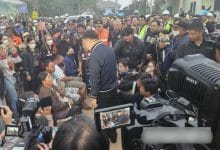Thai government asks private companies to allow staff to work from home

Thai health authorities are choosing to take a cautious approach, even though they say “the situation is under control”.
They’ve asked state agencies and private companies in Thailand to allow staff and contractors to work from their home. They’re suggesting that staff work from home for at least 14 days as the Omicron has reached 1,551 infections (as of January 1).
A government spokesman requested yesterday that state agencies will be required to allow their staff to work from home and private companies “are being encouraged” to allow workers to do the same “to prevent further spread of the highly transmissible Omicron variant”.
Thai PM Prayut Chan-o-cha says the government is hoping to avoid any further clusters of Omicron infections like the one in Kalasin, north east Thailand, the source of a total of 244 cases that have now been identified.
On the day where people will be flooding back from the provinces into the capital, the PM advised that there will be free testing at the Mor Chit bus terminal hub and Hua Lamphong railway station where rapid antigen tests will be provided for any passengers who wish to take them.
The permanent secretary for public health was happy to report that, at this stage, there haven’t been any severe cases resulting from the Omicron variant in Thailand.
“…as long as infected patients have mild or no symptoms and develop immunity, this should be okay.”
The CCSA will also meet this week to asses any further restrictions on Friday, January 7 whilst this Wednesday the public health department and CCSA have a scheduled meeting to re-assess the Test & Go and Sandbox programs for the Thailand Pass which were suspended (except for Phuket) on December 21 last year.
The other date to watch for is January 15 when the CCSA said they’d review the reopening of bars and nightlife around the country.
After crowded Christmas and busy New Year celebrations, along with extensive travel over the four-day long weekend (which ends today), the CCSA says they’re making plans to handle any surge in Covid-19 infections. They announced they would respond to any outbreaks with “readied response teams” to deploy to affected areas, instead of larger lockdown or restrictions.
The government last week insisted they don’t intend to reinstate any of the harsh lockdowns.
Thailand has officially logged a total of 1,551 Omicron cases over 47 provinces up to January 1. Of those, 779 were from international arrivals and 772 locally transmitted. Most of the cases were from Bangkok with 395 Omicron cases. There was also 125 infections of the variant detected in Phuket.
The public health department is asking people to follow the ”Universal Prevention” precautions… “such as wearing masks, and maintaining safe distancing”.
Yesterday, due a rise in Covid infections in the Chon Buri province, specifically Pattaya and Bang Lamung, the governor announced that restaurants selling alcohol have been ordered closed, except those venues that conduct antigen testing on staff and patrons. Here is the announcement…
1. All staff, including musicians, performers, entertainers, etc (whatever ‘etc’ is) must take a rapid antigen Covid19 test daily
2. All customers, regardless of the size of the venue and regardless of the customer’s vaccination or recovery status, must take a Covid antigen test within 72 hours of the current time period to dine-in. The venue can arrange for on-site testing or accept qualified test results.
3. If a venue is unwilling or unable to meet the first two points they must shut immediately until/if restrictions are eased.
SOURCES: Bangkok Post | FRB | NBT
Latest Thailand News
Follow The Thaiger on Google News:


























